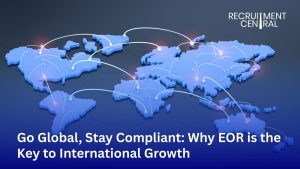To keep pace with varied job requirements, organizations need to hire and classify employees under three primary categories – permanent, temporary, and contractual. Understanding the differences between these classifications is important to determine the employment status and the eligibility for compensation & benefits. Here’s what you should know about permanent, temporary, and contractual work:
Permanent
Permanent workers are those who work with your company based on a permanent employment contract or a fixed-term agreement, where the employee is contracted through the employer’s/client payroll. Permanent employees are eligible for full company benefits, while they continue to be a part of the company regardless of the job duties and duration. They have permanent employment status.
Temporary
As a business expands and grows, it may experience a sudden peak in workload. In other scenarios, a company may face fluctuations in the workforce due to illness, maternity or paternity cover. To address these challenges, companies hire temporary workers for an agreed daily or hourly rate. They are typically hired through a staffing agency or a recruitment firm.
As such, temporary employees are not under the direct payroll of the employer. They will receive a daily or hourly wage from the staffing agency. They will also receive potential benefits like health coverage, vacation, and retirement plans from the staffing agency and not the company. Since they are paid on an hourly or daily rate, temporary employees must also be paid for overtime.
Contractual
Both temporary employees and contractual workers make for a company’s contingent workforce, but there are differences between these two categories. Unlike temporary employees, contractual workers are not paid on an hourly or daily rate. Typically, they are self-employed and get paid a flat amount by the company on completing a particular project or a specific deliverable.
A key feature of contractual workers is they have the flexibility to choose their own working hours and from where they want to work. Depending on the type of project, they may choose to work from your office, their home or any location they want. Unlike temporary employees, they are paid for the work and not the amount of time they work.
Recruitment Central is a licensed employment agency and recruitment consultancy in Singapore that empowers organizations with permanent, temporary and contractual staffing solutions.






